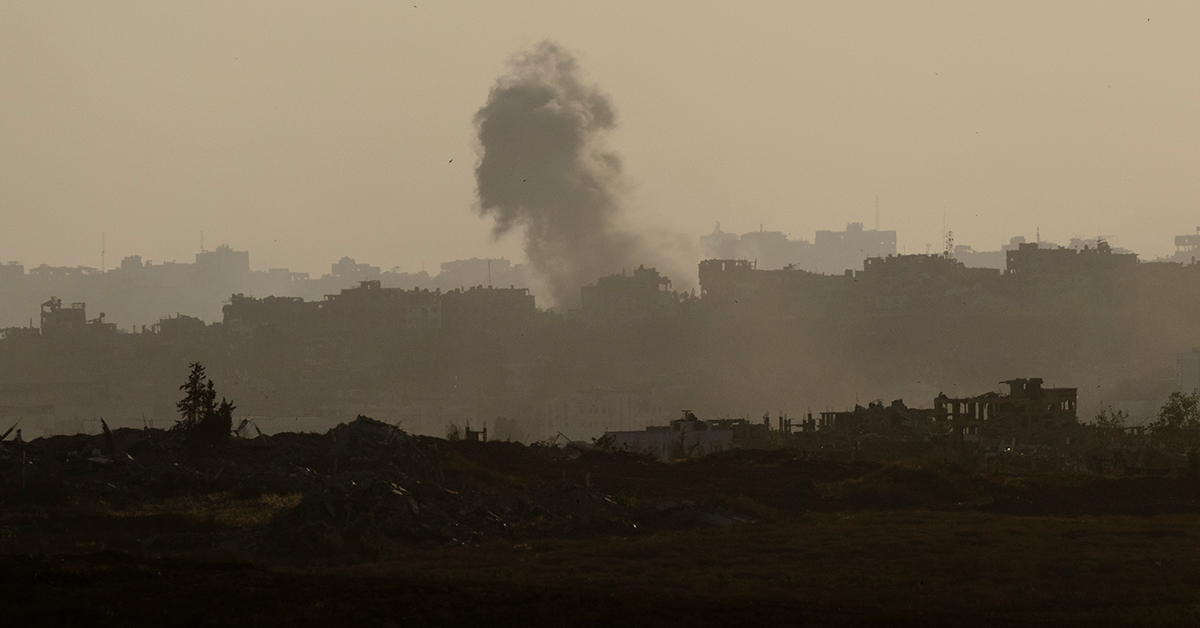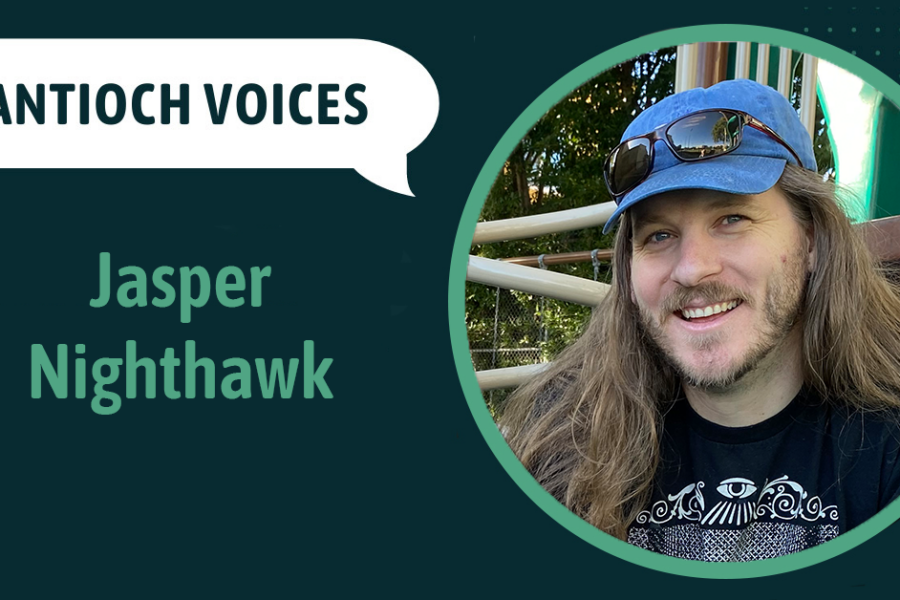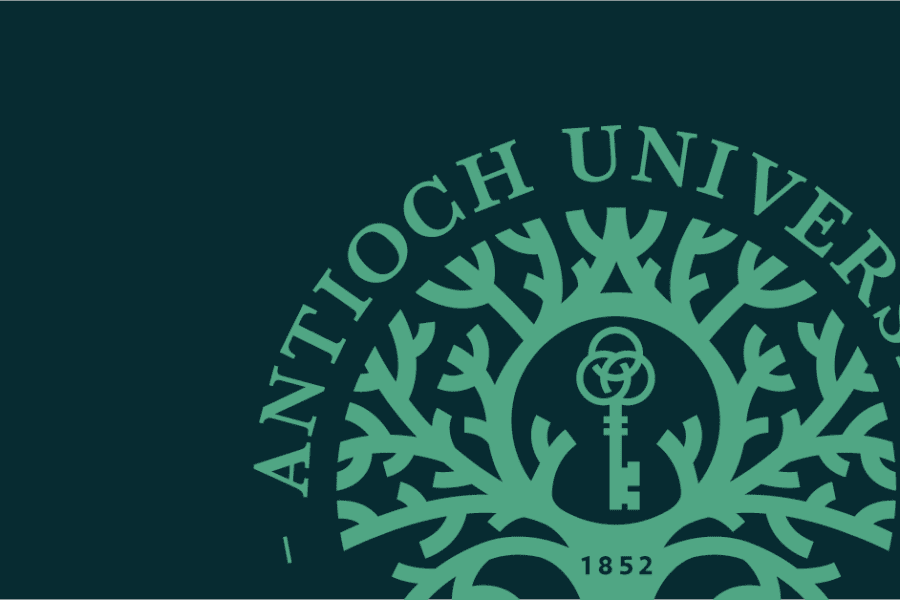It has been almost eight months since Israel launched its full-scale invasion of the Gaza Strip in response to the Hamas-led attack of October 7. In the intervening months, tens of thousands of Palestinians have been killed, even more have been injured, dozens of Israeli hostages have been killed, the healthcare, education, and housing infrastructure of Gaza has largely been destroyed, and the 2.3 million people living in Gaza today are facing conditions of catastrophic hunger and famine.
As Chancellor of Antioch University, I am adding our voice to the many others calling for an immediate and permanent ceasefire, the immediate release of hostages, and for a global humanitarian aid effort in Gaza to swiftly reach all of the civilians who are suffering. Antioch is on the side of peace and human rights.
I also want to express my deepest sympathy to the many in our community who have been directly or indirectly impacted by this conflict. To those of you who have lost family members and friends, either during the Hamas-led attack in southern Israel on October 7, or the ensuing military response by Israel in Gaza, you have my deepest sympathies. And for those of you who have been living with fear for your own safety and for the safety of those you love, whether in Palestine, Israel, Lebanon, here in the U.S., or elsewhere, I am so sorry that you and your loved ones are going through this.
As Chancellor, I believe my primary role is to ensure that Antioch University is a safe place for education, a forum for discussion and debate over complex issues, and an institution that upholds the principles of academic freedom. With that in mind, I see how this violent conflict has caused many of us to feel anguish, isolation, anger, and estrangement from each other and from our institutions. Many of you have reached out by email or in person to tell me of your own experiences and often to ask me to take action. I appreciate each message I have received and each conversation we have had. And I want to acknowledge that I wish I had spoken to you, all of you who make up our community, sooner. I have drafted many such messages, and many more in my head since my first message calling for an end to the violence on October 10. But the conflict has escalated, many more lives have been lost, and there is too much grief and outrage around our university to not address this.
In considering the position of Antioch University—whether we should say anything at all, and if so, what that statement should be—I have been very conscious of our diversity. We have students, faculty, and staff of many diverse and intersecting identities and beliefs. This diversity gives us much of our vibrancy and strength. It also means we must work hard to make sure none of us feel unwelcome or unsafe on the basis of our identities. We come together around a shared belief in the value of human life and a commitment to working so that all people have the human rights to safety, security, dignity, peace, and freedom.
Let me say clearly that we value our Israeli Antiochians and our Palestinian Antiochians, our Muslim Antiochians and our Jewish Antiochians, as much as we value our Antiochians from every other nation and creed. I treasure each of you who make up this university. I have been asked repeatedly to take sides in this conflict, but it is not for me or this institution to do so. There have been atrocities and human rights violations on both sides for generations. There has been unfathomable loss and suffering on both sides. There have been many sincere and workable peace accords that have failed over the years because they were rejected by one party or the other. But we can all be advocates for peace, for humanitarian aid to innocent civilians, for the safe return of those innocent civilians held in captivity under inhumane conditions, and for diplomacy and leadership that will result in a permanent resolution to the conflict and an independent and free Palestinian state. We can all be advocates for human rights and a lasting peace.
There must be room in any institution of higher education for respectful debate. I also believe that respectful, honest conversation is one of the only ways we make progress—especially on this issue. That is why today I am announcing that our Truth, Racial Healing, and Transformation Campus Center will soon be holding circles around this subject, with the intention of creating a space where we can come together and hear each other’s voices. The TRHT’s model of holding healing circles based around listening rather than responding lets us pause and think about what we need in terms of continued healing and community. Together, we are so many voices, and what the truth looks like for each of us may be different. Luckily, both Antioch University’s TRHT and its sister center at Otterbein University have excellent facilitators who know how to create spaces where we can hear each other. Please watch for information on how and when these circles will be held. I hope many of you will be able to attend.
I want to say, as we consider our own speech, whether in the classroom, in TRHT discussions, through email, or elsewhere, there are guardrails and limitations on how we communicate with each other. As I have said many times before, Antioch proscribes and denounces hate speech in all forms, including Islamophobia and antisemitism, and we have robust policies to address any such incidents here. I want to draw your attention both the Student Code of Conduct, and the Employee Code of Conduct, which define hate speech as including “calling for the genocide of a people because of their religion, or making mendacious, dehumanizing, demonizing, or stereotypical allegations about a religious group, or asserting that all people of a faith hold collective guilt for the actions or atrocities of one or more individuals of that faith.” We must remember that we are all individuals, responsible for our own actions but not for those made by others who share our various identities. At the same time, I want to point out that our definition of hate speech does not include “criticism of religious nations or governments or their public or foreign policies similar to those criticisms levied against other nations or governments.” We should, and must, have vigorous debate about the policies of nations and the practices of governments. But in these conversations there is no space for hatred. Simply put, attacking someone on the basis of their religion, ethnicity, or nationality is unacceptable.
I also want to extend once again the invitation to write for Antioch Voices. We started this forum two years ago, to create a space for Antiochians to speak out about issues important to them. The 25 essays we have published so far provide a powerful window through which to explore a diverse array of issues that various Antiochians feel passionately about. The most recent Antioch Voices piece is an essay by Jasper Nighthawk about grieving the deaths in Gaza while parenting a toddler. I am certain that many of you reading this letter have your own experiences, wisdom, and strongly held beliefs—and I believe that others in our community are eager to hear from you. If you’d like to contribute, the first step is to send a short description of what you are planning to write about to [email protected]. My hope is that Antioch Voices can continue growing as a venue for members of our community to share what you feel most strongly about.
Lastly, I want to answer publicly a question I have received from multiple sources requesting information about Antioch’s investment strategies and demanding that Antioch divest from any company with ties to Israel. I am aware of no such investments. However, let me be clear, our situation is very different in this regard from Harvard, Yale, Columbia, and other wealthy institutions. First, our endowment is extremely small, less than $10 million. Of that, only a few million dollars are invested in equities. Second, Antioch University does not invest in individual stocks or companies. We moved to a “passive investment model” over a decade ago in which we do not actively trade stocks or engage a fund manager. Those “managed” endowment models are loaded with management fees that eat up a significant portion of any gain on the funds. Under the passive investment model, we avoid all such fees by investing only in mutual funds. In our case we have chosen Socially Responsible index funds. When we divested from fossil fuel-related industries, we worked for two years to find an index fund that filtered out all companies listed in the Underground 200. When one finally became available, we shifted our investments. To my knowledge, there are no such index funds that currently filter out companies with ties to Israel. I am open to further conversations on this topic, but I think that before deciding whether that is a path Antioch University would take it is worth noting that it appears that any impact would be small and changes may be technically unfeasible.
As I close this message, I want to acknowledge that I know it will not fully satisfy everyone. The passions and opinions around this conflict are too intense and diverse, fueled and colored by generations of pain. I also want to acknowledge the many other geopolitical tragedies and human rights atrocities occurring in our world, all of which unfortunately claim the lives of innocent civilians, from Putin’s invasion of Ukraine, to the civil war in Sudan, to the food crisis and violence in Haiti, to the ongoing humanitarian crisis at the southern border of the U.S., and much more. If one of these is affecting you or your loved ones, please know that you too have the sympathy of the rest of Antioch University—and our prayers and meditations for a swift, just resolution and for peace.
Sincerely,
Bill Groves




